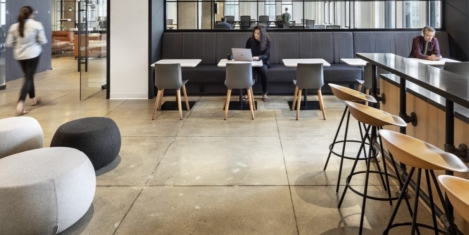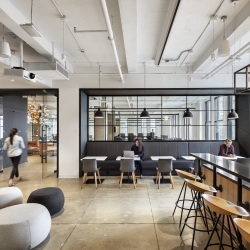November 9, 2022
Cost of living forcing people to seek out sources of extra income
 Workers are looking for new jobs, asking for extra shifts, or taking on side hustles to make ends meet as everyday expenses eat up a bigger chunk of their pay cheques. A new Qualtrics study claims that 77 percent of workers say it’s harder to pay for their living expenses than it was a year ago. In the UK, inflation recently rose above 10 percent for the second time this year amid soaring food prices. Compounding the impact of the cost of living, many of the work-related expenses that were relieved by remote work, such as commute costs and full-time childcare, are returning as an increasing number of people head back to the office. More →
Workers are looking for new jobs, asking for extra shifts, or taking on side hustles to make ends meet as everyday expenses eat up a bigger chunk of their pay cheques. A new Qualtrics study claims that 77 percent of workers say it’s harder to pay for their living expenses than it was a year ago. In the UK, inflation recently rose above 10 percent for the second time this year amid soaring food prices. Compounding the impact of the cost of living, many of the work-related expenses that were relieved by remote work, such as commute costs and full-time childcare, are returning as an increasing number of people head back to the office. More →




















 An idea that has never really gone away, but which seems to be enjoying a new lease of life is the tabula rasa. The conception of people as a blank slate is something a that has crept back into mainstream political and social thought for a variety of reasons. Arguably, it is also behind many of the most misleading notions about work and workplace design, perhaps most importantly that a change to some single element or characteristic of a working environment will lead to a specific outcome in the behaviour of people.
An idea that has never really gone away, but which seems to be enjoying a new lease of life is the tabula rasa. The conception of people as a blank slate is something a that has crept back into mainstream political and social thought for a variety of reasons. Arguably, it is also behind many of the most misleading notions about work and workplace design, perhaps most importantly that a change to some single element or characteristic of a working environment will lead to a specific outcome in the behaviour of people. 













November 3, 2022
Are digital skills the key to a happier, more productive workforce?
by Katy Liddell • Comment, Technology, Workplace